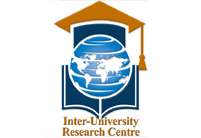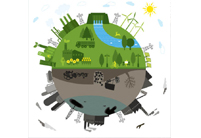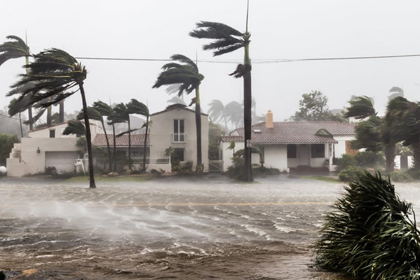About Confederation of Indian Universities (CIU)

Born on 21st April, 2004, CIU is an apex body of universities in
India, with around 1200 universities as its member. It is a
purely voluntary organization of universities and university
level institutions in India. It provides various kinds of
services to its member organization, services such as
opportunities to collaborate with leading international
institutions, curriculum enhancement consultancy, pedagogy
development consultancy, consultancy on quality enhancement,
research guidance & facilitation, publishing opportunities for
scholars, dissemination of information about available
opportunities in national and international academic
institutions, consultancy on legal matters such as handling of
relationship with statutory bodies etc.
matters such as handling of
relationship with statutory bodies etc.
CIU does not look at academia as an insulated universe. Instead,
we at CIU believe that universities are parts of larger social
system, from where they draw various kinds of nourishment such
as finance, manpower, market etc. Thus, according to CIU,
universities owe it to society to contribute towards development
of a better and smarter society. In a way, CIU is not just about
the universities themselves, as it is about the relationship
that exists between the universities and the society at large.
CIU believes that it is its solemn duty to nourish this
relationship and help sustain the symbiosis that is the
foundation of this relationship.
There are of course other platforms where universities
congregate. But, most of the times, either those platforms are
simply avenues for the Government to interact with the top
management of the university system, or, those are voluntary
associations designed to act as advocacy platforms, platforms
through which universities mostly lobby for better tax
environment, lesser compliance burden, freedom to raise funds
etc.
CIU however, as described above, is different. It is not just a
platform for universities to improve their collective bargaining
strength, but, more importantly, it is a platform where all
stakeholders, namely civil society, Government, corporate world,
independent scholars, media and NGOs come together with the sole
purpose of finding out ways & means to improve the functioning
of the relationship that exists between universities and society
at large..
About Inter-University Research Centre (IURC)

Inter-University Research Centre (IURC) is an offshoot of CIU.
As discussed in the preceding pages of this document, one of the
most important tasks assigned to CIU by its founders is the
promotion of a culture of high-quality research in the
institutions of higher learning in India. Towards that end, CIU
has been working with individual researchers and the
organizations associated with them. However, as is to be
expected, managing this structure where CIU has to work with
individual organizations separately is a tedious task and
consumes a lot of managerial bandwidth of CIU. Besides, because
of the plethora of research projects, all of them working as
silos insulated from each other, CIU felt that it was not
possible to provide a coherent direction and a unifying thread
to the multitude of research projects supported by it.
Apart from all this, CIU also felt that it needed a separate
organization that would not only promote a culture of research
among the member organizations but, wherever apt, also take the
output of the research to the people at large, by using the
networks that exist between the individual universities and the
communities that fall in their catchment areas..
About the Climate Action Initiative (CAI)

The need for climate action: Ever since the onset of the
industrial age, impact of man on the global climate and ecology
has been on a scale that could not have been imagined in the
preceding ages.
Scientific data shows that the global average temperature has
risen by around 1°C since pre-industrial times. The magnitude
and pace of warming of global weather, can no longer be
attributed to long cycle variations in global climate alone. In
fact, the data having been painstakingly gathered ever since
1950s clearly shows that something other than pure natural
forces is to be blamed.
And, a simple application of logic reveals that there is only
one factor that has changed drastically over this period, and
that one factor is human impact on environment. This same
conclusion was achieved, when, the vast data, gathered over the
last 50 years or so, was used to carry certain statistical
examinations through tools such as correlation, regression etc.
Each of those statistical tests gave a certain kind of
relationship between the global climate change and the various
variables thought to be responsible for the same. Among those
multitudes of statistical relationships between various
variables, one relationship that repeated itself most
consistently, was the one that said that there was very high
positive correlation between worsening global climate and the
rising severity of human activity on the climate.
Subsequently, several more such tests were conducted using other
data sets, using ever more powerful supercomputers with
staggering computing powers. But, with a few exceptions here and
there, that too not very credible, now, almost every
climatologist worth his salt, agrees, that it is human
footprint, manifesting itself through parameters such as
emissions of greenhouse gases (GHGs), aerosols and changes in
land use and land cover (LULC), that have substantially altered
the equilibrium of the global climate.
Terrifying pieces of evidence in the form of warming of the
ocean waters resulting in significant weather anomalies such as
frequent heat waves, droughts, heavy precipitation, and severe
cyclones, changes in wind patterns (including shifts in the
global monsoon systems), warming and acidification of the global
oceans, melting of sea ice and glaciers, rising sea levels, and
changes in marine and terrestrial ecosystems, is now staring
directly into our eyes.
In fact, according to the opinion of substantial majority of
climatologists, the rate of change seems to be gathering pace,
and, unless urgent measures are implemented, we would be staring
at the bleak prospect of staring onto the point of no-return.
And, even more alarming is the prospect that if we procrastinate
any further, we would probably not be able to do anything to
avert the unspeakable human disaster that would be our ultimate
undoing.
Note on Confidentiality
It is a property of Inter-University Research Centre (IURC)
which is a platform floated by Confederation of Indian Universities (CIU), an
apex body of around 1200 universities and university level institutions in
India.
The information in this website are meant for the exclusive consumption of
people associated with CIU and IURC. If anyone else happens to find this
document or any part thereof, the person is requested to immediately get in
touch with the office of either CIU or IURC and return the document to our any
of our officers.
Unauthorized accessing, publication, whether in part or in full, or sharing &
distribution of the contents of this document without the prior approval of IURC,
is an offence. The same, if brought to the notice of IURC or CIU, would be
considered an infringement of our intellectual property, and the organization
would consider itself free to pursue appropriate legal action..
Purpose of this Information
This document is not a scholarly writing on the topic of
human induced climate change. It is a document that has been prepared with the
intention of introducing the idea called Inter-University Research Centre (IURC)
which has been floated recently by Confederation of Indian Universities (CIU).
Through this document, an attempt has been made to explain what CIU is and what
it does. This document also explains what IURC is and what its relationship with
CIU is. This document also contains brief introduction about all that IURC
intends to pursue in near future, including what it plans to do for the cause of
climate preservation.
Finally, this document should be seen as a call to collaboration, going out from
one organization in India to all other like-minded people and organizations all
over the world.
Effects of Climate Change





